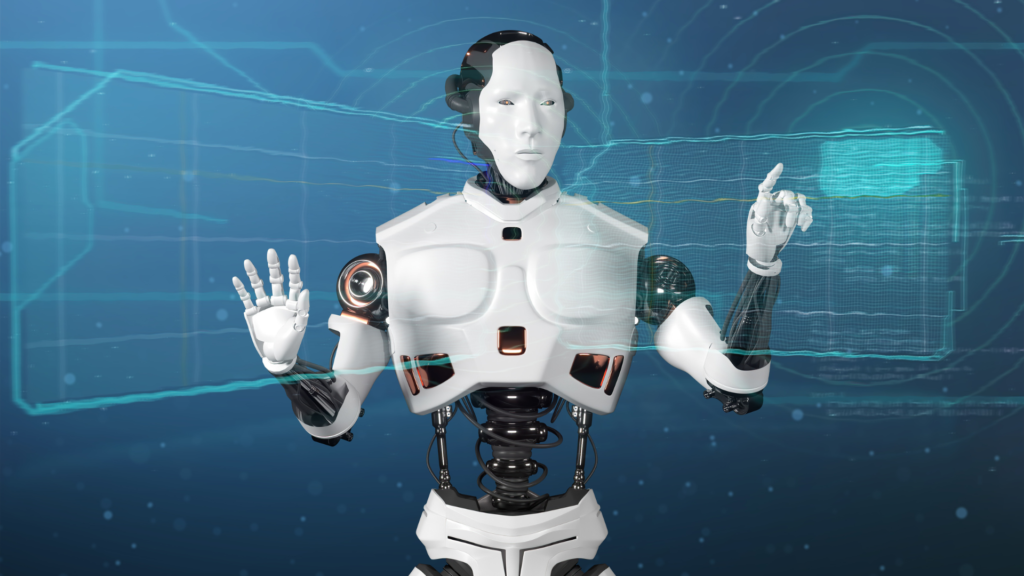Artificial Intelligence (AI) is transforming many fields, including education. The future of AI in education promises smarter learning and better results.
Education is evolving with technology. AI offers personalized learning experiences, adapting to each student’s needs and pace. This means students can learn more effectively. Teachers also benefit, as AI can handle repetitive tasks, giving them more time to focus on teaching.
The future holds exciting possibilities, from AI tutors to smart classrooms. These advancements aim to improve learning outcomes and make education more accessible to everyone. Stay tuned to discover how AI is shaping the future of education and what it means for students and teachers alike.

Credit: www.leewayhertz.com
Revolutionizing Classroom Learning
AI is transforming education by making learning smarter and results better. Interactive tools personalize lessons to fit each student’s needs. This leads to more engaging and effective classroom experiences.
Personalized Learning Paths
AI can create personalized learning paths for each student. This means each student gets lessons that fit their needs. AI can analyze how a student learns and adapts the lessons. This helps students understand better and learn faster. Teachers can also track each student’s progress easily. They can adjust the lessons to help each student more.
Interactive Learning Tools
Interactive tools make learning fun and engaging. AI tools can answer questions quickly. They can give feedback on homework. These tools can simulate real-life situations for practice. This helps students apply what they learn in class. Teachers can use these tools to enhance their lessons. This makes learning more interactive and interesting.
Ai-driven Curriculum Development
AI can help in creating dynamic content. It can update learning materials quickly. This ensures that students get the most current information. AI can also tailor content to meet the needs of each student.
AI can build adaptive learning modules. These modules change based on student performance. If a student struggles, AI provides extra help. If a student excels, AI offers more challenging tasks. This keeps learning engaging and effective.
Step into the future of education—learn how AI is making learning smarter and more effective!
Enhancing Student Engagement
Gamification in education uses game elements to make learning fun. Students earn points, badges, and rewards. This keeps them motivated. They feel excited about learning new things. Games make learning interactive. Students enjoy solving problems and challenges.
This helps them understand lessons better. Gamification also creates friendly competition among students. They try to do their best to win.
Real-time feedback helps students improve fast. Teachers use AI tools to give instant responses. Students know their mistakes right away. This helps them learn from errors.
They can fix their work on the spot. Real-time feedback makes learning personalized. Each student gets advice based on their needs. This boosts their confidence and skills. Students feel more engaged and focused.

Credit: www.leewayhertz.com
Empowering Teachers With Ai
AI can help teachers grade papers faster. This means teachers have more time for students. It also makes grading fair. AI does not get tired or biased. This keeps grading accurate.
AI tools can help teachers plan lessons. These tools suggest topics and activities. They also adapt to student needs. This makes learning more fun and effective. Teachers can focus on teaching, not planning. AI makes this possible.
Discover how AI is shaping the future of education for better outcomes and personalized learning.
Data-driven Decision Making
AI helps schools make better choices with predictive analytics. This means using data to guess future events. Schools can see which students need extra help. Teachers can plan lessons that fit each student’s needs. This makes learning better for everyone.
AI tools track how well students do in school. They collect data on grades, attendance, and behavior. This data shows patterns and trends. Teachers use this info to help students improve. Parents also stay informed about their child’s progress. This helps students succeed.
Bridging The Accessibility Gap
AI tools help students with special needs. They can personalize learning. Each student can get what they need most. AI can read texts aloud. It can help those with reading problems. AI can recognize speech too. This is useful for students with writing challenges.
AI can track progress. Teachers can see what works best. They can adjust their teaching. This makes learning better for everyone. AI is a big help.
AI translation tools make learning easier. Students can learn in their language. This breaks down barriers. They can understand lessons better. Teachers can also communicate better. This helps in a diverse classroom. Everyone can feel included. AI makes learning fair for all.
Ethical Considerations In Ai Education
AI in education collects lots of data. This data includes student names, grades, and even behavior. It is important to keep this data safe. Privacy must be a top concern. Schools need to follow strict rules to protect student information. If data gets stolen, it can cause big problems. Parents and students must feel secure. Data should be used only for learning and not sold to others.
AI algorithms can sometimes show bias. This means they may treat some students unfairly. Bias can happen in many ways. It can be based on race, gender, or even language. To avoid this, AI systems need to be tested often. Fairness is crucial. Everyone deserves the same chances to learn. Regular checks can help find and fix any bias. Transparency is key. Schools must be open about how AI decisions are made.

Credit: er.educause.edu
Frequently Asked Questions
What Is Ai’s Role In Education?
AI personalizes learning, adapts to individual needs, and provides instant feedback. It helps teachers identify students’ strengths and weaknesses. AI also automates administrative tasks, giving educators more time to focus on teaching.
How Does Ai Improve Student Engagement?
AI offers interactive and adaptive learning experiences. It makes lessons more engaging through personalized content. AI-driven tools can also gamify learning, making it more fun and motivating for students.
Can Ai Help With Grading?
Yes, AI can automate grading for multiple-choice tests and assignments. It provides quick and consistent feedback. This allows teachers to focus more on student development rather than administrative tasks.
What Are The Benefits Of Ai Tutors?
AI tutors provide personalized support and are available 24/7. They help students learn at their own pace. These tutors can also identify areas where students need extra help and provide targeted exercises.
Conclusion
The future of AI in education looks bright. Smarter learning tools are here. Students benefit from personalized experiences. AI helps teachers focus on teaching. Better results become achievable. Technology continues to evolve. Education will improve with AI support. Embrace the change.
Stay informed and prepared. The journey has just begun.
